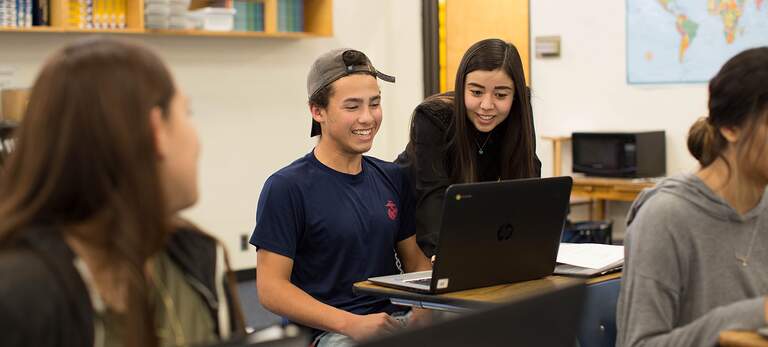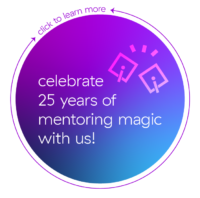iMentor partners with other non-profits to run our college success mentoring model in their local communities. Our partners have access to our proprietary platform, our curriculum, and our best practices that support students as they transition from high school to college.
One such partnership is with Big Brothers Big Sisters. Through our partnership, 13 BBBS agencies serving 16 different cities run mentor 2.0, which is a localized version of the iMentor program that is managed and executed by BBBS staff.
Hanh Tran, our Managing Director of Partner Programs, sat down with a few of our partners to discuss how their communities have benefited from our partnership, and how the mentor 2.0 program has grown for each of them. Kara Finger, Vice President of Programs from BBBS East Tennessee; Cara Amato and Amanda Frisco, both mentor 2.0 Program Coordinators from BBBS Independence Region; Michael McElroy, Manager of School Based Programs from BBBS Independence Region; Marie Logan, the CEO from BBBS of Southern Arizona; David Simpson, the COO from BBBS of Southern Arizona; and Denise Burruel, a Program Manager from BBBS of Southern Arizona, all virtually got together to chat.
Hanh: Let’s start by going around and sharing why you each brought the mentor 2.0 program to your respective communities.
Michael McElroy: College attendance and retention rates in Philadelphia are lower than the national average. The Philadelphia School District has been underfunded for many years, and public school students have very few resources in their schools, especially when compared to the many charter schools that are taking hold in the area. We believe that students who remain in the public school system deserve equal access to resources, and mentor 2.0 is a step in that direction. One of our goals is to help bridge the student to college counselor gap in the city.
Marie Logan: We’re also trying to bridge the student to counselor gap. We know that the student to counselor ratio in the country is 450 to 1. This ratio in the state of Arizona is actually double the national average—the highest in the nation. For every 903 students there is 1 counselor in the state. Clearly we see that Arizona, specifically Tucson, has a need for 1-on-1 mentoring support at the highest level. Arizona has the 8th lowest high school graduation rate matched with the 2nd lowest public school spending per student.
Kara Finger: For BBBS East Tennessee, we noticed that high school students were less engaged with our program; they were not as involved with us as other age groups. Even though the reasons for this lower engagement were positive (ie, involvement in sports, extracurriculars, jobs, or community), we still knew that because high school is a transitional period, it is a critical time for mentorship in a young person’s life. We looked all over the country for a program to fit our needs, and we heavily investigated several options. In the end we chose mentor 2.0 for several reasons: they are youth-centered (one-to-one mentoring); it engages youth with technology, and meets them where they are; iMentor uses an evidence-based curriculum; and there is a high regard for child safety.
Hanh: When you launched mentor 2.0, how did you feel about the supports offered and provided by iMentor?
Michael McElroy: It didn’t really crystalize until the new partner training in New York the February before we launched. Getting to observe the program in action and meet the team at iMentor really helped us feel supported as we began a new type of programming for our agency. The bi-weekly calls have also been a big help, as they help us incrementally track our progress each call, and give us a time to all zoom out and talk about the program and partnership as a whole.
David Simpson: Oh, iMentor provided excellent support during the launch phase. The in-person meetings, trainings, and the formal follow-ups were really helpful. It was important to have someone to carefully guide us through the startup process, and iMentor definitely provided that.
Kara Finger: iMentor supported us in every way possible! This type of program, including the technology and curriculum, was all new to us, and iMentor walked us through every step. They coached us and helped us to see problems before they arose. Our iMentor representative is very supportive and helpful. Even now, three years after the launch, our representative continues to support us. She has a very high level of engagement with us, which is a key component to our success.
Stay tuned to read Part 2 and Part 3 of this conversation, where partners share about their communities' reactions to mentor 2.0. If you’re interested in bringing the mentor 2.0 program to your community, submit a partner program application today! You can contact us at [email protected], learn more about our partnerships, or apply to be a partner here.

